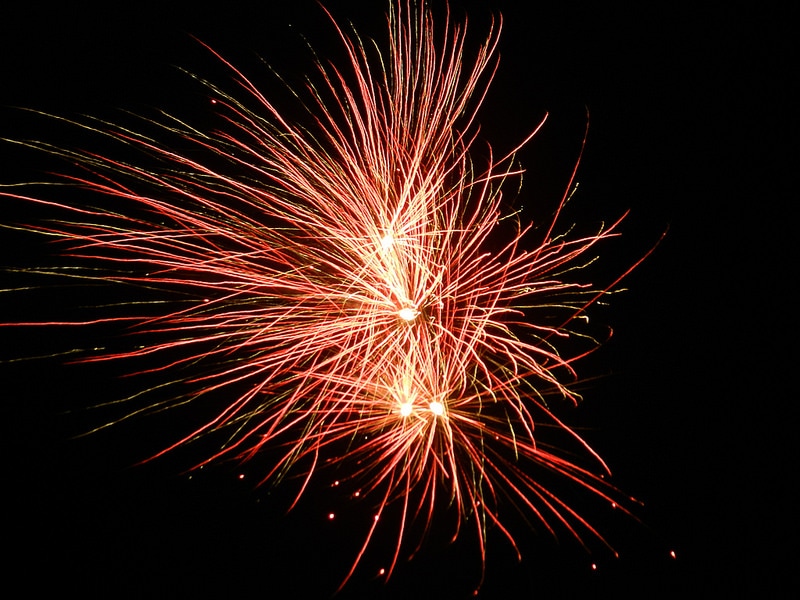| Firefighters called this year’s July 4 holiday a perfect storm for fire danger. If so, perfection is rarely so easy to predict. A good portion of the state near Panguitch had been on fire for days. A wet spring had left plenty of growth everywhere that hot, dry days had transformed into kindling. And then the population, almost in unison, played with fire. What were we expecting? |
| | I should know by now that the mere mention of outlawing fireworks during patriotic holidays is enough to ignite hot tempers. I have endless copies, thank you, of John Adams’ letter to his wife, in which he said he believed that, forever more, Independence Day “ought to be solemnized with pomp and parade, with shows, games, sports, guns, bells, bonfires and illuminations from one end of this continent to the other.” He actually was referring to July 2nd, which was when the Continental Congress voted to declare independence. But no matter, we have that covered in Utah, where “illuminations” take place for several days before and after the fourth. Also, people send me long, sarcastic lists of other potentially harmful things I might want the government to outlaw, including lightning. They challenge my support of freedom in general. They accuse me of wanting the government to protect us from ourselves. Actually, I just want it to protect me from you. And so, I have a confession to make. I enjoy fireworks as much as anyone. No, really. I enjoy everything the Fourth and 24th have to offer, especially hotdogs and watermelon. Whenever possible, I like to take my family to join my daughter, who lives near Washington, and to sit on the grass near the Capitol and watch fireworks illuminate the Washington Monument and Lincoln Memorial. It gives me goose bumps every time. I just don’t understand what any of this has to do with common sense, or with fire in a hot desert. “The Fourth of July celebrations of recent years have been insane,” solicitor N. M. Greenberger of Akron, Ohio, said. “People discharge all kinds and manner of fireworks and explosives who do not know what the day signifies.” The quote demonstrates little, other than that this is not a new issue. He made that statement in 1908, just after someone demonstrating sparklers at Kresge’s Five and Ten Cent store in Cleveland ignited a fast-moving blaze that killed seven and injured dozens. Cleveland quickly outlawed fireworks after that, apparently deciding lives and property were more important than outward displays of patriotism. Back to that “perfect storm:” Firefighters in Utah have been busy since Saturday. That’s when a house near SCERA Park in Orem caught fire after fireworks landed on the roof, causing about $100,000 damage and a partially collapsed roof, according to the Provo Daily Herald. Later, as BYU’s Daily Universe reported, errant fireworks were blamed for causing extensive damage to the home of a history professor, destroying much of his Western art collection and many books. On the fourth, dozens of grass fires broke out in Salt Lake and Davis counties. Fire crews worked on these as the sun went down and neighborhoods began erupting in their own hot celebrations. One of these, near I-80 and 1300 East in Salt Lake City, came close to the Sugarhouse Park fireworks show. Another, in Cottonwood Heights, nearly destroyed three houses before being contained. Over in Tooele County, a young boy apparently disobeyed his mother and set off fireworks, igniting a brush fire that came within a few feet of some homes. Unified Fire Authority Battalion Chief Steve Prokopis told the Deseret News, “For a single day, (it was) extraordinary even for us on the Fourth of July.” No people were injured, which was as remarkable as the fact there weren’t even more such fires. Obviously, most Utahns are responsible in the way they discharge their illuminations. Many cities passed ordinances banning fireworks in particularly vulnerable areas. But the margin for error is small under these conditions. Utah is unique in that it celebrates two July holidays with fireworks. In the interim, we should ponder how little sense it makes to see a perfect storm on the horizon and not take precautions. |


 RSS Feed
RSS Feed

